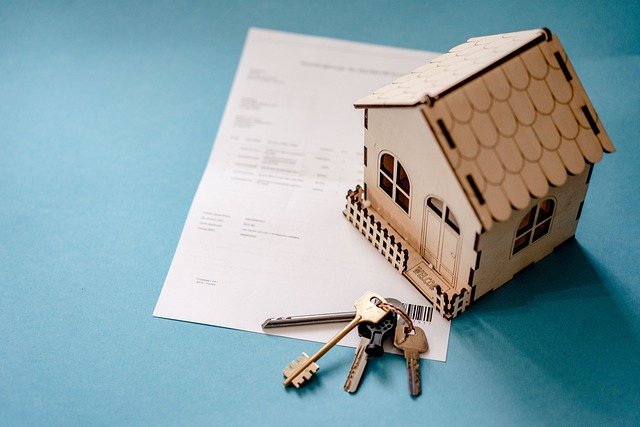
Purchasing the right home insurance policy in British Columbia calls for diplomacy and sheer prudence. While you might be inclined to opt for an affordable policy, the chances are high that you might overlook specific valuable coverage provisions.
Of course, you have reputed insurers offering home insurance policies at low rates. Well, it all depends on your specific requirements whether you should go for such schemes. You may want to visit this site and consult with the insurance specialists regarding your deductible, monthly premium, and overall coverage you might need.
Moreover, you might be confused over the premiums you need to shell out for a home or a condo. In this article, the experts will answer the questions you’ve all been waiting for — how much is home insurance in BC?
How much does home insurance cost in BC?
An average Canadian shells out around $840 annually for property insurance. However, the prices might vary from one province to another and depend on various factors.
- The maximum amount should not exceed $984 in British Columbia.
- In provinces like Alberta and Ontario, the residents pay around $912 and $828 a year.
- In provinces like Quebec, your annual home insurance premium can be as low as $768.
Again, you need to consider whether you reside in a rented property or a home that you own. For rented properties, the insurance premiums are lower than owned ones. Of course, rented property insurance policies cover only certain limited aspects.
However, if you are a condo owner or a renter, you would be insuring your own property. This would cover both your personal property and dwelling property. Presently, most insurers cover additional expenses, such as liability.
Premiums for home insurance for an owned property are higher than rented dwellings by 1.4 times in Alberta and 2.1 times in Ontario. For a rented dwelling, one needs to shell out around $696 a year.
However, this rate in British Columbia is reasonably affordable, and you would have to pay $588 a year for insuring your rented home. In provinces like Ontario and Quebec, these premiums can be as low as $480 and $408, respectively.
However, British Columbia happens to be the most expensive province when it comes to owned property. Residents in this province may have to pay around $984 a year for insuring the owned property. In provinces like Alberta, Ontario, and Quebec, this premium ranges between $852 and $948.
What factors determine the premium of your home insurance in British Columbia?
1. Type of property
The nature of the dwelling goes a long way in determining the premium you need to shell out. You might be residing in a condo of 500 Sq.Ft., a three-storey building, or an apartment. The insurers will evaluate each of these properties differently, as they come with different levels of risk.
For instance, a house would have its roof, which needs coverage. However, if you reside in a condo, it would be a single unit where the charges for roof maintenance would be paid by all the occupants collectively.
2. Your location
If you reside somewhere with a high crime rate, your insurance premium will reflect this. The insurance company would be considering threats like theft, vandalism, and break-ins.
Again, if you live close to the airport, issues like heavy vibrations or falling debris might lead to a spike in the premium.
If you reside close to a hill or water body where chances of overland flooding are high, the premium would be more. This is because the property would be prone to water damage.
3. Past claim record
Be ready to shell out higher monthly premiums for your home insurance in British Columbia if you have already made too many claims in the past.
In case there is a minor leak or crack in your property, experts recommend getting it fixed yourself. However, you need to submit a claim if your property has a large hole in the ceiling, which might cause wind or rain damage.
In a nutshell, you should only submit a claim when its cost is more than the deductible. You can also obtain cheaper quotes by paying a higher deductible.
4. Cost of replacement
While the replacement cost happens to be a significant determinant of your home insurance premium, many households misinterpret this concept. This is not the cost of replacing the property at the price you built it.
Instead, you need to consider the current market rates of the material or your belongings. Therefore, you need proper insurance coverage to obtain the cost of rebuilding the property in the worst scenario.
5. Internal construction
Internal construction includes wiring, heating, plumbing, and similar systems. In case you have old fixtures or wiring, chances of fire are higher. In these scenarios, the insurer is likely to charge higher premiums. Likewise, old water pipes made of galvanized steel might develop cracks, leading to water damage. On the other hand, materials like PVC would be more durable.
The heating might involve radiators or electric baseboards. In some buildings, in-floor heating systems are also incorporated. Depending on the durability of these fixtures, the premium is decided.
Apart from this, some other factors like your credit score, accessories like a pool, or possible renovations have a bearing on the premium. Additionally, if you have pets at home, you may have to pay a higher premium.
Getting cheap home insurance premiums
- If you arrange for a renovation before purchasing the premium, you can enjoy lower premiums. Poorly maintained and old homes are likely to sustain damages faster.
- Upgrading the kitchen or basement might help you save money on your premiums.
- If you happen to have aluminum wiring, it might be expensive to get them insured.
- If you are purchasing a new home, choose a neighbourhood with low crime rates.
Endnote
You should now be familiar with the answer to the question, “how much is house insurance in BC?” — you can use the information you’ve learned to lower the insurance premiums. For more information, talk to an established insurance specialist or broker.

